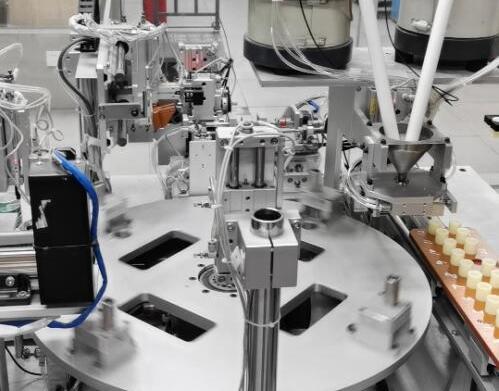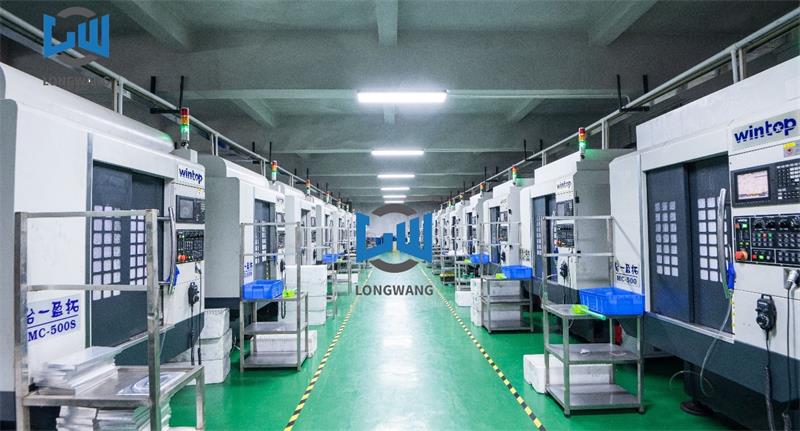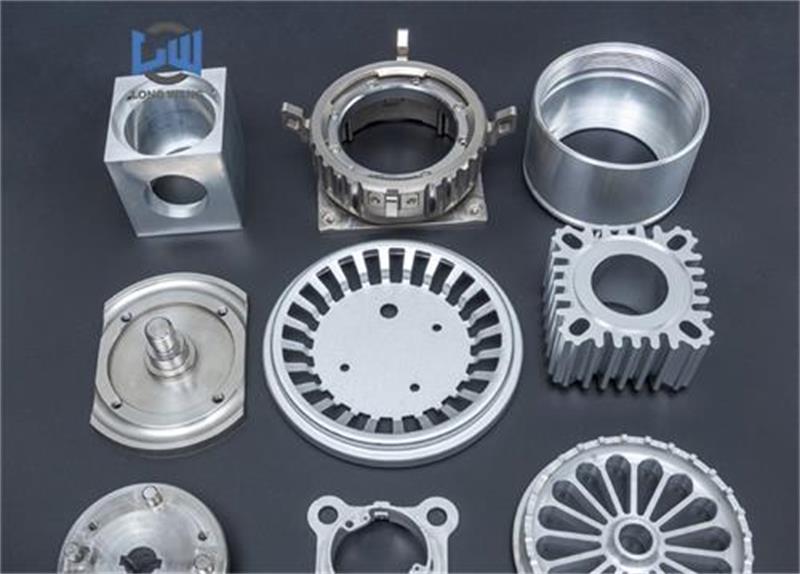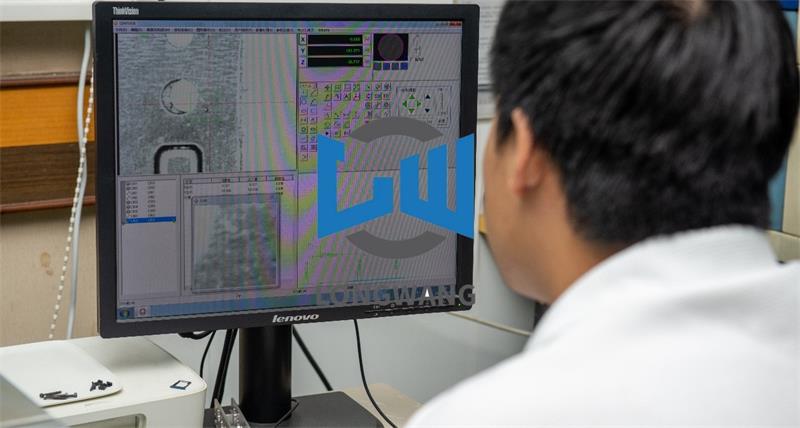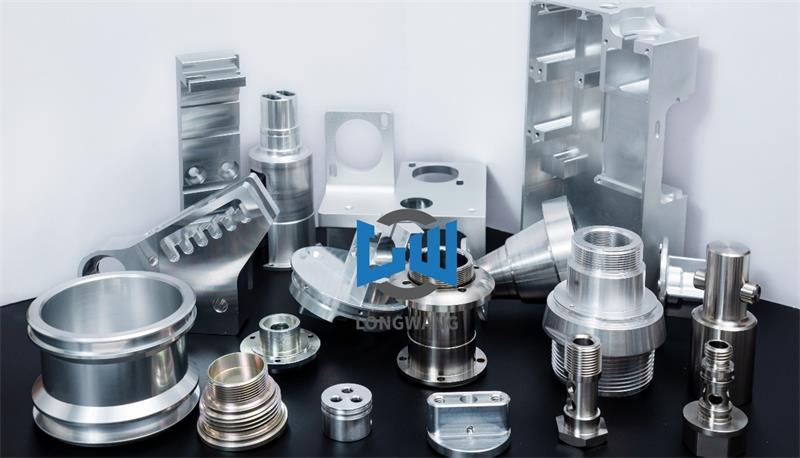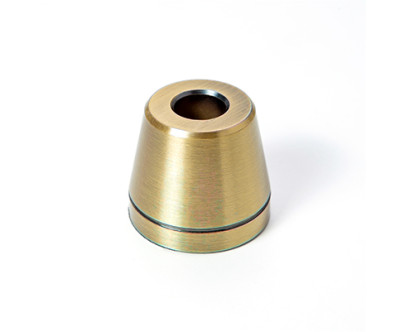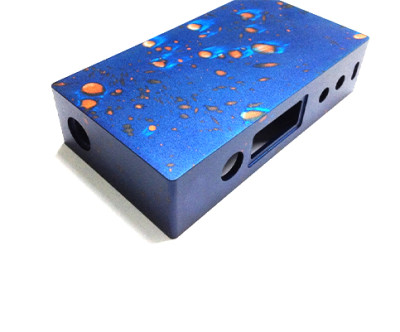The Significance of High Precision CNC Machining in the Automation Equipment Industry
In the dynamic realm of automation, achieving the utmost precision is fundamental. Industries such as manufacturing, aerospace, and robotics heavily rely on automation equipment to enhance efficiency and productivity. High Precision CNC Machining stands as a vital component, ensuring the accuracy essential for these sectors.
In today's rapidly evolving world of automation, precision is the cornerstone of success. Industries such as manufacturing, aerospace, and robotics rely heavily on automation equipment to enhance productivity and efficiency. High Precision CNC Machining plays a pivotal role in achieving the level of precision required in these fields. In this article, we delve into the importance of high precision CNC machining in the automation equipment industry, emphasizing its advantages and impact on technological progress.
Why High Precision CNC Machining is Crucial
1. Accurate and Consistent Production
High precision CNC machining ensures the production of parts and components with unmatched accuracy and consistency. Automation equipment requires seamless assembly, and any deviation in size or dimension can lead to malfunction, downtime, and increased maintenance costs.
2. Compliance with Tight Tolerances
Automation equipment often operates within strict tolerances. CNC machining guarantees that components are manufactured precisely, adhering to these exact tolerances. This precision is essential for integrating diverse parts within automated systems flawlessly.
3. Enhanced Performance
Automation equipment must perform tasks swiftly and precisely. High precision CNC machining guarantees that components meet precise specifications, resulting in superior overall performance. This is critical in industries where even a minor deviation can cause significant efficiency loss.
4. Minimized Material Waste
High precision CNC machining reduces material wastage, aligning with sustainability goals. Precision production optimizes material usage, cutting costs and minimizing the environmental footprint, a crucial consideration for automation equipment manufacturers.
5. Enhanced Reliability
Automation equipment is expected to operate reliably. High precision CNC machining contributes to producing durable, dependable components, reducing the likelihood of unexpected breakdowns and resulting downtime.
The Importance of High Precision CNC Machining
1.Precision and Consistency: High precision CNC machining is synonymous with impeccable accuracy and unwavering consistency in producing critical parts and components. Automation equipment depends on seamless component assembly, and any deviations in size or dimensions can lead to costly equipment malfunctions, downtime, and increased maintenance expenses.
2.Strict Tolerances: Automation equipment operates within extremely narrow tolerances. CNC machining ensures that components are manufactured with meticulous precision, adhering to these stringent tolerances. This precision is essential for the seamless integration of diverse parts within automated systems.
3.Enhanced Performance: Automation equipment is designed for speed and efficiency. High precision CNC machining ensures that components meet precise specifications, leading to improved overall performance. This is particularly crucial in industries where even slight deviations can result in substantial efficiency losses.
4.Minimized Waste: High precision CNC machining minimizes material wastage. By producing components with precision, manufacturers can optimize material utilization, reducing costs and environmental impact. This aligns with the sustainability goals of many automation equipment manufacturers.
5.Dependability: Automation equipment is expected to operate consistently and reliably. High precision CNC machining contributes to the production of durable and dependable components, reducing the risk of unexpected breakdowns and downtime.
Key Advantages of High Precision CNC Machining
1.Automation Integration: CNC machining seamlessly integrates with automation systems. Computer-controlled machines produce parts with minimal human intervention, ensuring high precision and repeatability in large-scale production.
2.Versatility: CNC machines can work with a diverse range of materials, from metals to plastics. This versatility empowers manufacturers in the automation equipment industry to craft various components tailored to their specific requirements.
3.Cost-Efficiency: Although the initial investment in CNC machinery may seem substantial, the long-term cost savings are substantial. Reduced labor costs, minimal material wastage, and increased production efficiency contribute to overall cost-effectiveness.
4.Rapid Prototyping: High precision CNC machining allows for swift prototyping of components. This facilitates the design and testing of new automation equipment, expediting innovation in the industry.
In the fast-paced world of automation, precision is paramount. The Automation Equipment Industry relies heavily on cutting-edge technologies to optimize operations and deliver superior products. Central to this endeavor is High Precision CNC (Computer Numerical Control) Machining, a vital process that ensures impeccable accuracy and quality in the creation of components for automated systems.
The Essence of High Precision CNC Machining
CNC machining involves utilizing computer-controlled machines to precisely shape and fabricate parts with exceptional accuracy and consistency. High Precision CNC Machining takes this a step further, emphasizing meticulous attention to detail, tight tolerances, and exacting specifications. This level of precision is instrumental in manufacturing components that seamlessly integrate into automation equipment, promoting optimal performance.
Unwavering Accuracy for Enhanced Automation
In the automation equipment industry, even the slightest deviation from precise measurements can cause significant disruptions. High Precision CNC Machining addresses this concern by enabling manufacturers to achieve unparalleled accuracy in every component produced. Each piece is meticulously crafted to match exact specifications, leading to smoother operations, reduced downtime, and improved product quality.
Meeting Demands for Complex Designs
Automation equipment often requires intricate and complex components to function optimally. High Precision CNC Machining excels at crafting intricate designs with intricate geometries, ensuring that every piece meets the unique demands of automation systems. This versatility in design capabilities positions CNC machining as an indispensable asset in creating sophisticated automation equipment.
Speeding Up Production without Sacrificing Quality
Efficiency is a critical factor in the Automation Equipment Industry. High Precision CNC Machining strikes a balance between speed and quality. By automating the machining process and employing advanced software, manufacturers can produce components faster without compromising precision. This accelerated production pace aligns with the fast-paced nature of the automation sector, meeting industry demands with excellence.
Enhancing Cost-effectiveness and Scalability
Precision manufacturing not only elevates the quality of automation equipment but also contributes to cost-effectiveness. High Precision CNC Machining minimizes material waste and reduces the need for manual intervention, ultimately cutting down on production costs. Moreover, the scalability of CNC machining ensures that as demands increase, the process remains efficient and adaptable to varying production volumes.
Embracing a Future of Precision Automation
As automation continues to evolve, the Automation Equipment Industry must prioritize precision to stay ahead of the curve. High Precision CNC Machining stands as a fundamental pillar in achieving this objective, fostering innovation and enabling the creation of cutting-edge automation solutions.
In conclusion, High Precision CNC Machining is an indispensable asset in the Automation Equipment Industry, offering unmatched accuracy, efficiency, and versatility. Manufacturers can harness the power of precision to develop automation equipment that revolutionizes industries.
High precision CNC machining is indispensable in the automation equipment industry, enabling the production of precise, consistent, and intricate components. The ability to create complex designs, work with diverse materials, and maintain tight tolerances makes CNC machining a cornerstone of automation equipment manufacturing. As technology continues to advance, the role of CNC machining in the automation sector will only become more pivotal, driving innovation and shaping the future of automation equipment.
